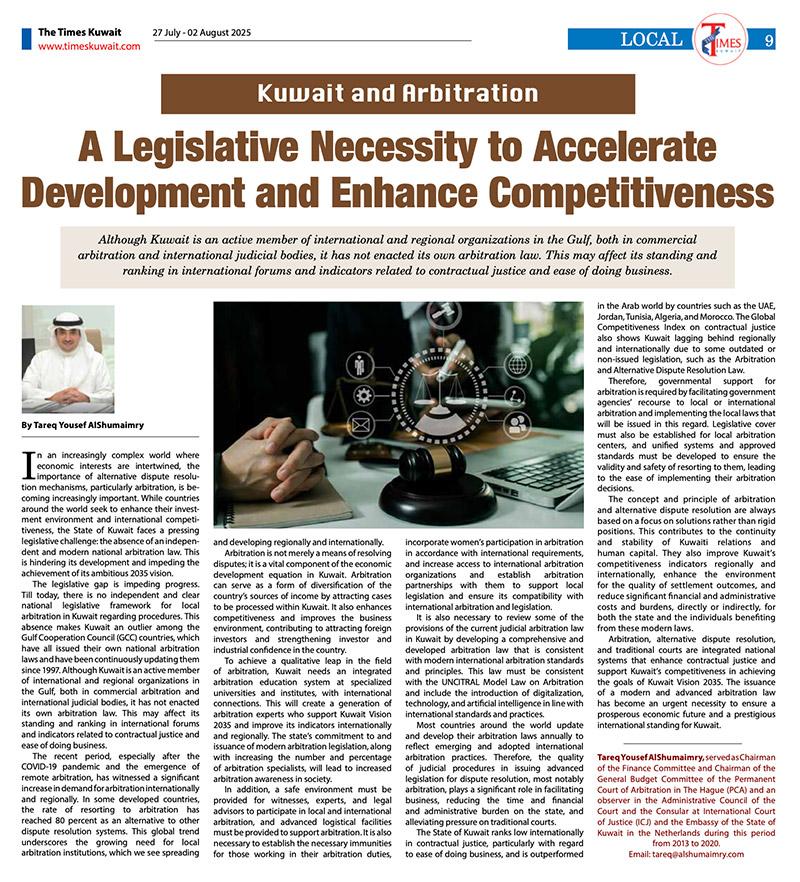By Tareq Yousef AlShumaimry
Former Secretary-General of the Commercial Arbitration Centre of the Gulf Cooperation Council
In an increasingly complex world where economic interests are intertwined, the importance of alternative dispute resolution mechanisms, particularly arbitration, is becoming increasingly important. While countries around the world seek to enhance their investment environment and international competitiveness, the State of Kuwait faces a pressing legislative challenge: the absence of an independent and modern national arbitration law. This is hindering its development and impeding the achievement of its ambitious 2035 vision.
The legislative gap is impeding progress. Till today, there is no independent and clear national legislative framework for local arbitration in Kuwait regarding procedures. This absence makes Kuwait an outlier among the Gulf Cooperation Council (GCC) countries, which have all issued their own national arbitration laws and have been continuously updating them since 1997. Although Kuwait is an active member of international and regional organizations in the Gulf, both in commercial arbitration and international judicial bodies, it has not enacted its own arbitration law. This may affect its standing and ranking in international forums and indicators related to contractual justice and ease of doing business.
The recent period, especially after the COVID-19 pandemic and the emergence of remote arbitration, has witnessed a significant increase in demand for arbitration internationally and regionally. In some developed countries, the rate of resorting to arbitration has reached 80 percent as an alternative to other dispute resolution systems. This global trend underscores the growing need for local arbitration institutions, which we see spreading and developing regionally and internationally.


